This is considered an important push for scientific research in Vietnam to shift from "quantity" to "quality". Especially in universities, where new knowledge is trained, nurtured and produced.
Violations of scientific integrity: From warning to dismissal
Recently, many scientists who are staff and lecturers at universities have had their articles withdrawn from international journals for various reasons, including violations of scientific integrity, and have been handled according to the regulations of each school.
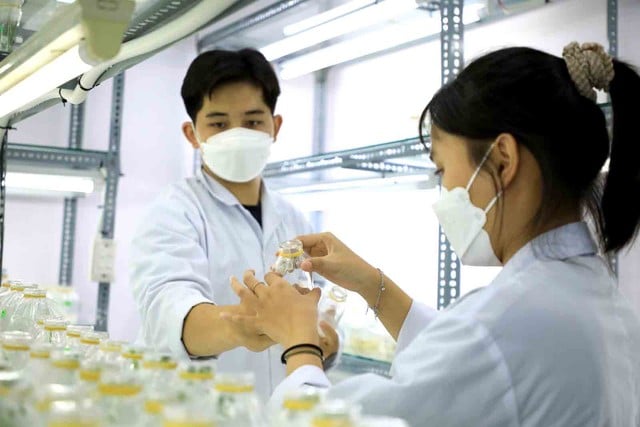
Legalizing the issue of scientific integrity will help scientific research activities become more substantial.
PHOTO: D.HCT
However, according to university leaders, detection, inspection and handling still face many difficulties due to lack of inspection and monitoring tools.
In October 2023, the Academic Integrity Council of Ho Chi Minh City University of Economics (before becoming a University) considered handling the case of Mr. PQH, Deputy Head of the School's Training Department, the final author of the article that was withdrawn from the Optik magazine because he did not believe in the honesty of the research. Mr. H. explained to the school, admitted his mistakes and asked to learn from his experience. After investigating and working with the magazine, the school's Academic Integrity Council concluded that there was no information about the purchase and sale of the article, so it reminded Mr. H. to seriously learn from his experience and comply with the regulations of academic integrity.
In 2023, Ho Chi Minh City University of Industry and Trade also considered handling a case of scientific integrity violation. Specifically, the article published in May 2020 in the RSC Advances journal by Dr. HTV, Deputy Head of the Faculty of Chemical Technology, as the first author along with 6 other Vietnamese authors. The authors in the group proactively withdrew the article after some accusations of errors in the research results.
Associate Professor Dr. Nguyen Xuan Hoan, Principal of Ho Chi Minh City University of Industry and Trade, said: "Previously, the author of the article was awarded 35 million VND according to the school's regulations. After receiving the explanation, considering that the article had been withdrawn and was not eligible for the award, the school asked Mr. HTV to refund the award."
Nguyen Tat Thanh University once dismissed Mr. VND.V. from his position as Deputy Director of the Institute of Technology Application and Sustainable Development because his article was removed from the Frontiers in Energy Research magazine, after Mr. V. proactively submitted a resignation letter and a withdrawal letter from the university's Science and Training Council.
According to Frontiers , the reason the article was removed was because the publisher found evidence of multiple undeclared conflicts of interest that “undermined the integrity” and “undermined the integrity” of the peer-review process. Specifically, both the editor in charge of the peer-review process and the reviewers were related to the article’s authors.
Most other violations at universities, whether they are scientific integrity violations or not, intentional or unintentional, objective, are handled depending on the level and all greatly affect reputation and work.
Lack of assessment and control tools
Article 20 of Decree 109/2022 on scientific and technological activities in higher education institutions requires higher education institutions to issue internal regulations, control tools, and measures to handle violations to prevent plagiarism, fraud, and fabrication in scientific, technological, and innovative activities. Up to now, most universities have clear regulations on integrity, violations, and implementation principles... However, assessment and control tools are still limited.
Associate Professor Dr. Nguyen Xuan Hoan said: "The school has regulations, but there are almost no control tools. For example, if a scientific article is withdrawn, the school will not know if no one discovers it or reports it or if the author does not report it himself. Plagiarism is not always detected. The school still calls on lecturers to be self-aware as the first thing. If there is a violation, the bonus will be withdrawn if it has been received, the violating work will not be accepted, and at the same time, it will not be considered for the award of that school year. People with positions can have their positions revoked."
Associate Professor, Dr. Nguyen Hoai Son, Head of the Department of Science, Technology and Development Cooperation, University of Technology - Vietnam National University, Hanoi, also said that usually when there is an incident, such as a scientific article being withdrawn, only then will the schools discover it, inspect and handle it.
Since 2019, Ho Chi Minh City University of Industry has started to have a policy of rewarding scientific research works of lecturers. Associate Professor, Dr. Dam Sao Mai, Vice Principal, informed: "At that time, there was no concept of scientific integrity. We have researched monitoring tools such as checking scopus on the web, searching for journal links... while working, adjusting and perfecting".
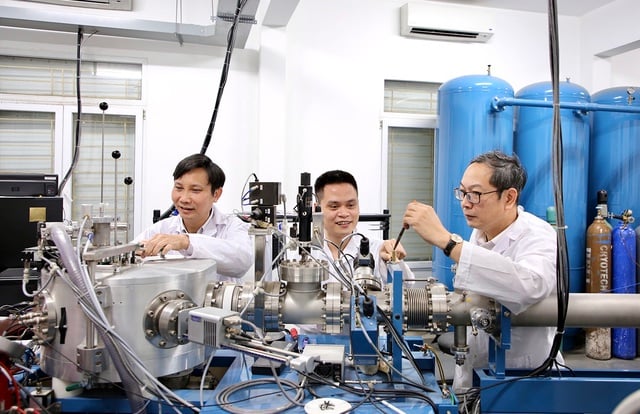
Legalizing scientific integrity is the foundation for building national academic reputation and promoting sustainable innovation, creating a transparent and trustworthy research environment.
Photo: UET
Legalization will boost the research environment
Professor Hoang Van Kiem, former Chairman of the State Council for Professors in Information Technology, former Principal of the University of Information Technology (Ho Chi Minh City National University), currently a senior advisor and Chairman of the Science and Training Council of Saigon International University, commented: "Previously, scientific integrity was often understood as "ethical standards" or internal regulations, lacking binding mechanisms. Once legalized, it becomes a legal obligation, forcing scientists, research facilities, and management agencies to comply. Legalizing scientific integrity will create an important push for Vietnamese research to shift from "quantity" to "quality", from "form" to "substance", especially in universities - where new knowledge is trained, nurtured, and produced."
According to Professor Kiem, this is the foundation for building national academic reputation and promoting sustainable innovation, creating a transparent and trustworthy research environment. "Scientific integrity is a global standard. Legalization will help Vietnam "speak the same language" with the world, making it easier to cooperate, publish internationally and attract investment and research funding," Professor Kiem said.
However, Professor Hoang Van Kiem said: "Schools need a serious monitoring and enforcement mechanism; otherwise, the law will only remain on paper. There must be supporting tools such as a plagiarism checking system, open data, and an independent review mechanism. In addition, it is necessary to change the evaluation mechanism; instead of just counting the number of articles, we must also evaluate their quality, impact, and compliance with scientific integrity."
Identifying violations of scientific integrity
Article 8 of the Law on Science, Technology and Innovation, issued by the National Assembly in August 2025 and effective from October 1, mentions scientific integrity and professional ethics in scientific research and scientific development.
Specifically, Article 8 clearly states: Agencies, organizations and individuals are responsible for ensuring compliance with scientific integrity and professional ethics in scientific research and technology development. Acts of falsifying data, plagiarism, concealing conflicts of interest or acts of distorting the nature of research are serious violations of scientific integrity.
Recently, the draft decree detailing and guiding the implementation of a number of articles of the Law on Science, Technology and Innovation on information, statistics, assessment, digital transformation and general issues, including Article 8, has provided specific contents, to be applied to organizations and individuals operating in science, technology and innovation in Vietnam, relevant state agencies, organizations and individuals.
That means scientific research, technology and innovation activities at universities will also be within the scope of application.
This draft decree has defined the principle of integrity (Article 4). In addition, it clearly states that acts considered as violations of scientific integrity include: falsifying data and research results; falsifying data; plagiarism in any form; falsely naming authors or removing authors with real contributions; obstructing, threatening, coercing, or interfering in the process of evaluating, reviewing, and approving scientific manuscripts; and other acts that violate the principle of integrity specified in Article 4.
Source: https://thanhnien.vn/liem-chinh-khoa-hoc-chinh-thuc-vao-luat-khoa-hoc-vn-chuyen-tu-luong-sang-chat-185250930185246211.htm




![[Photo] President Luong Cuong receives President of the Senate of the Czech Republic Milos Vystrcil](/_next/image?url=https%3A%2F%2Fvphoto.vietnam.vn%2Fthumb%2F1200x675%2Fvietnam%2Fresource%2FIMAGE%2F2025%2F11%2F20%2F1763629737266_ndo_br_1-jpg.webp&w=3840&q=75)
![[Photo] Lam Dong: Panoramic view of Lien Khuong waterfall rolling like never before](/_next/image?url=https%3A%2F%2Fvphoto.vietnam.vn%2Fthumb%2F1200x675%2Fvietnam%2Fresource%2FIMAGE%2F2025%2F11%2F20%2F1763633331783_lk7-jpg.webp&w=3840&q=75)

![[Photo] National Assembly Chairman Tran Thanh Man holds talks with South Korean National Assembly Chairman Woo Won Shik](/_next/image?url=https%3A%2F%2Fvphoto.vietnam.vn%2Fthumb%2F1200x675%2Fvietnam%2Fresource%2FIMAGE%2F2025%2F11%2F20%2F1763629724919_hq-5175-jpg.webp&w=3840&q=75)
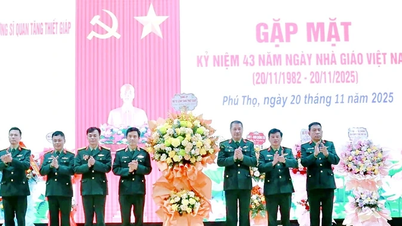

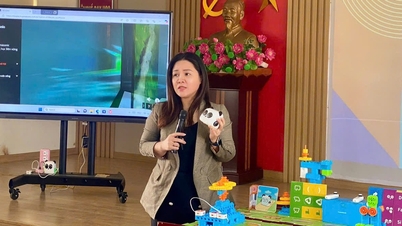
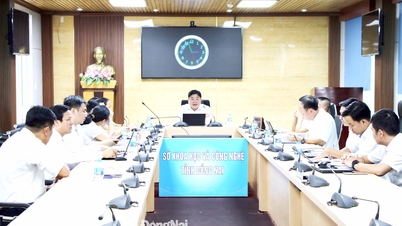







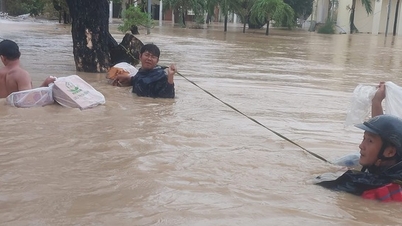

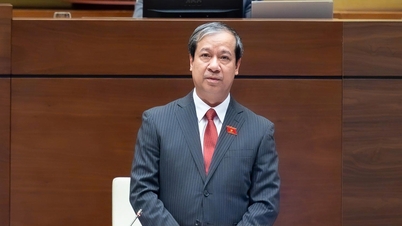

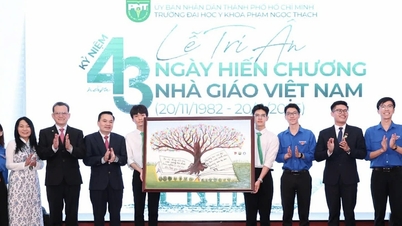
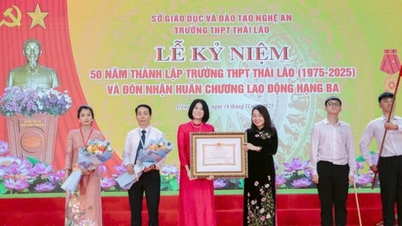

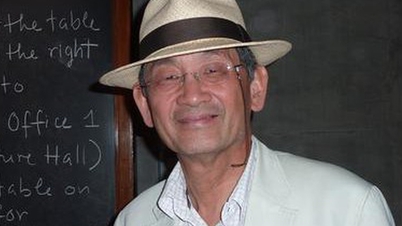
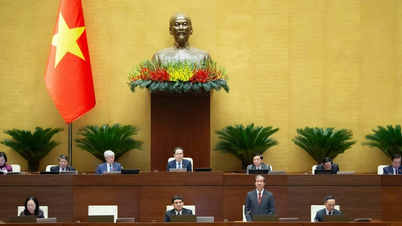





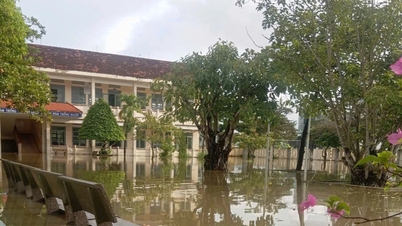
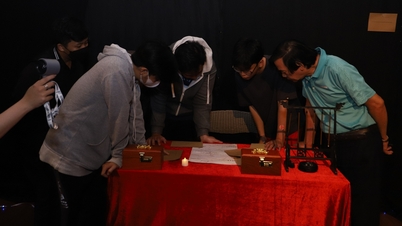
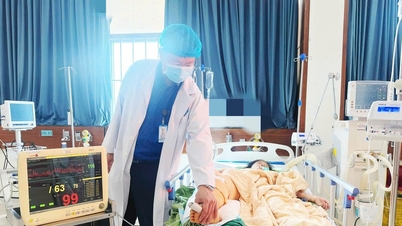
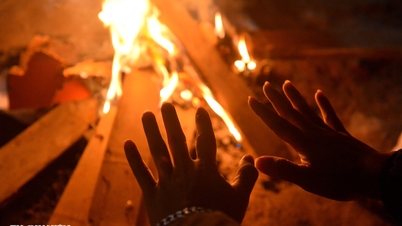
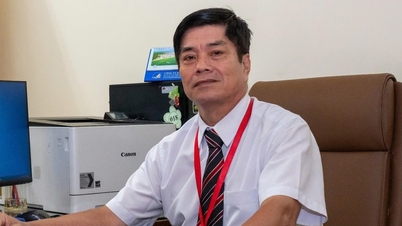
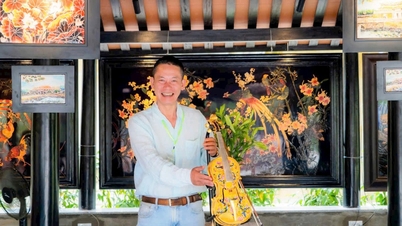

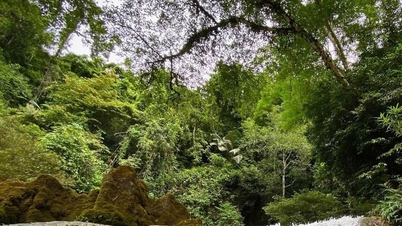
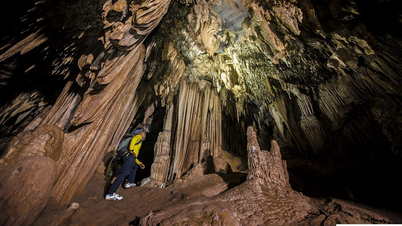






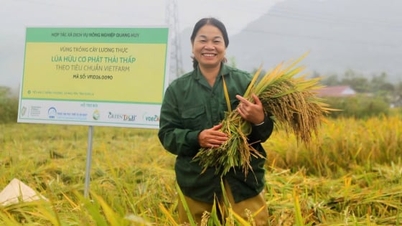

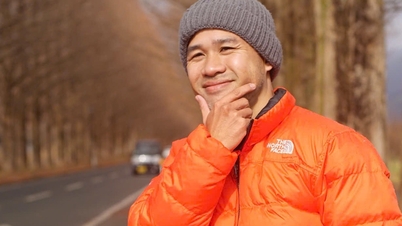
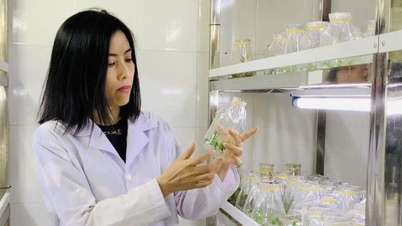
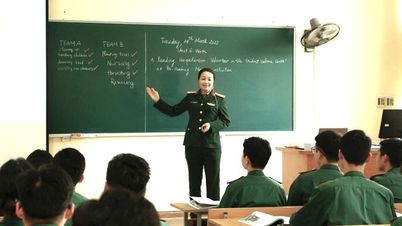

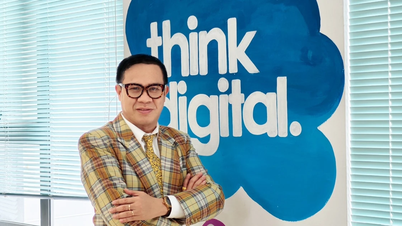
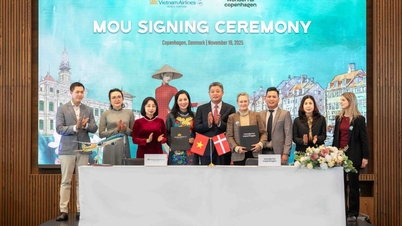

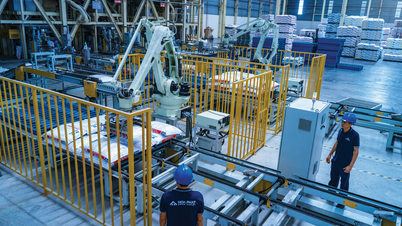

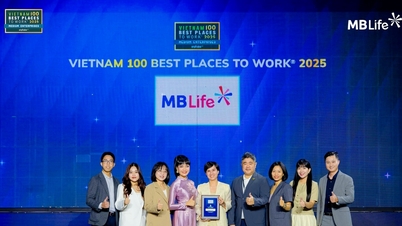










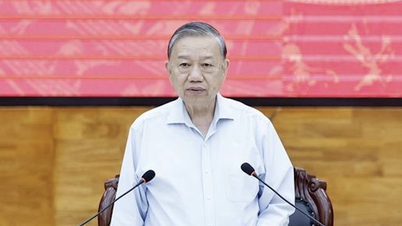



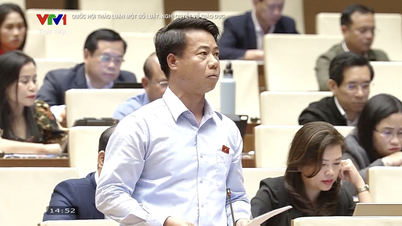


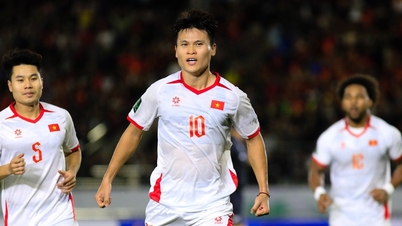
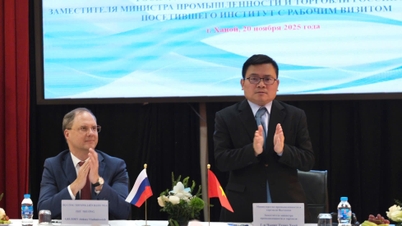

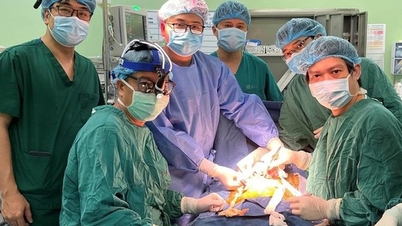

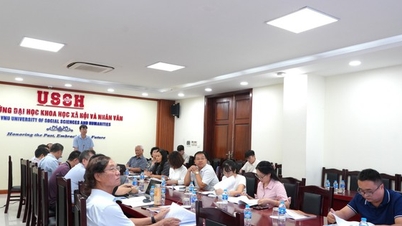
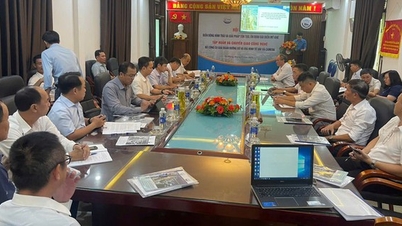
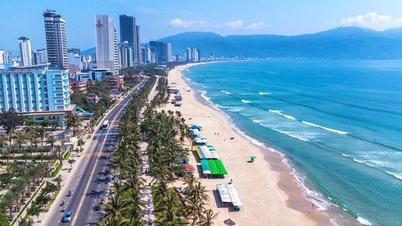
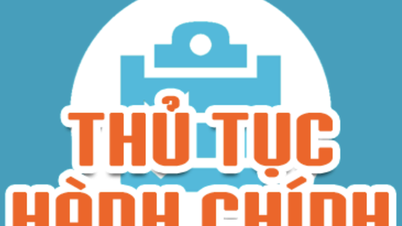


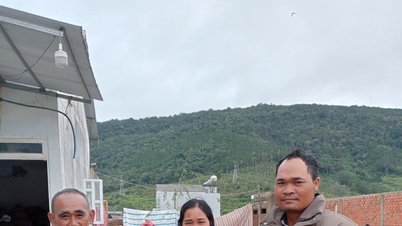

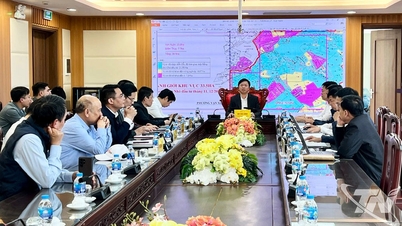

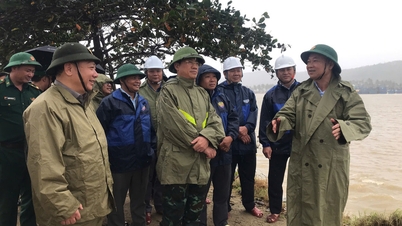
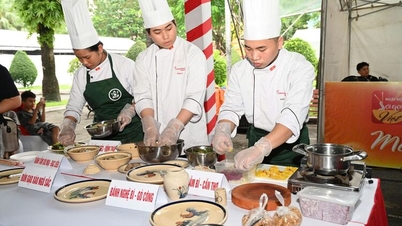

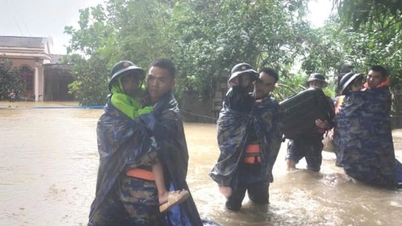














Comment (0)